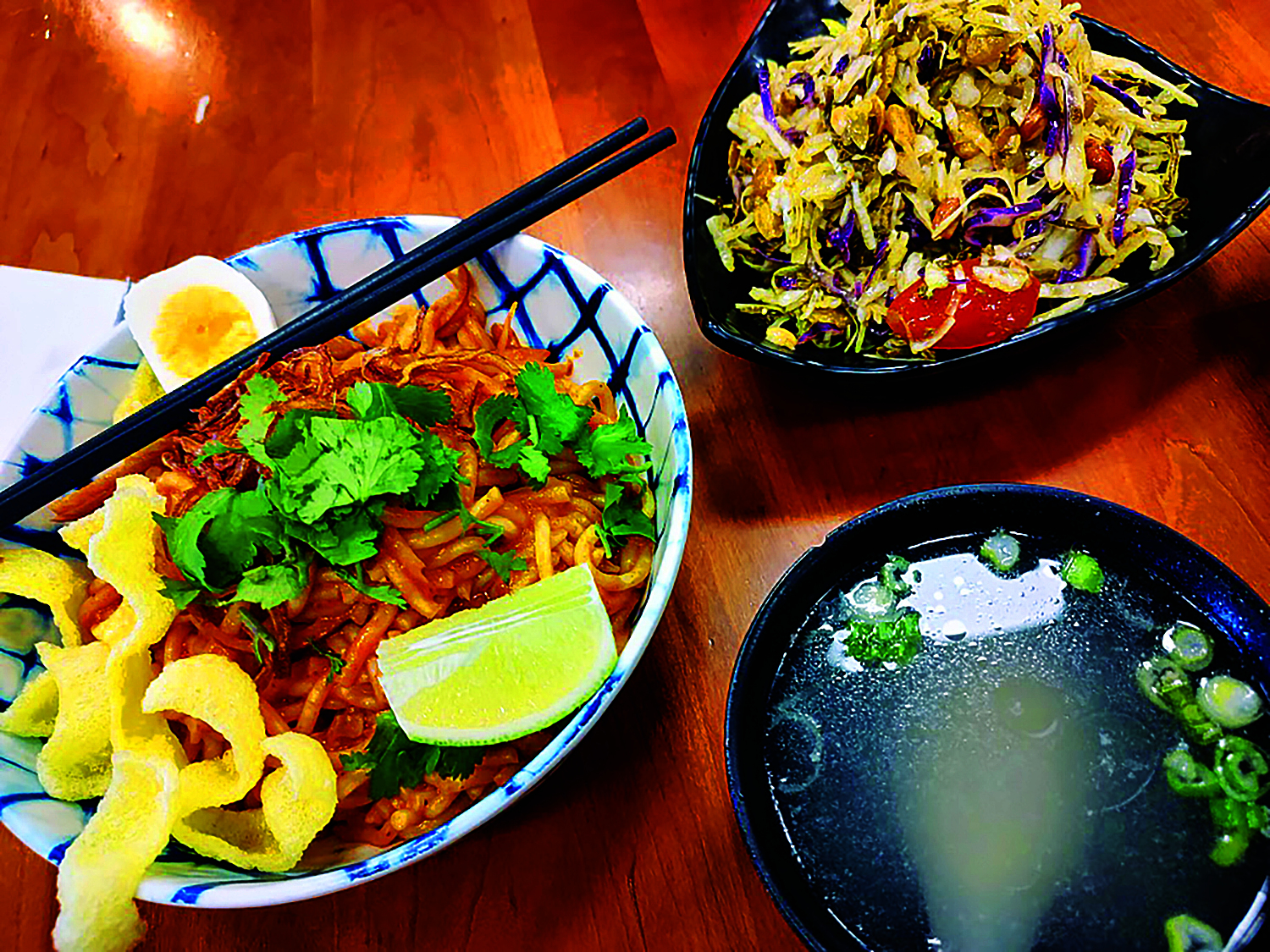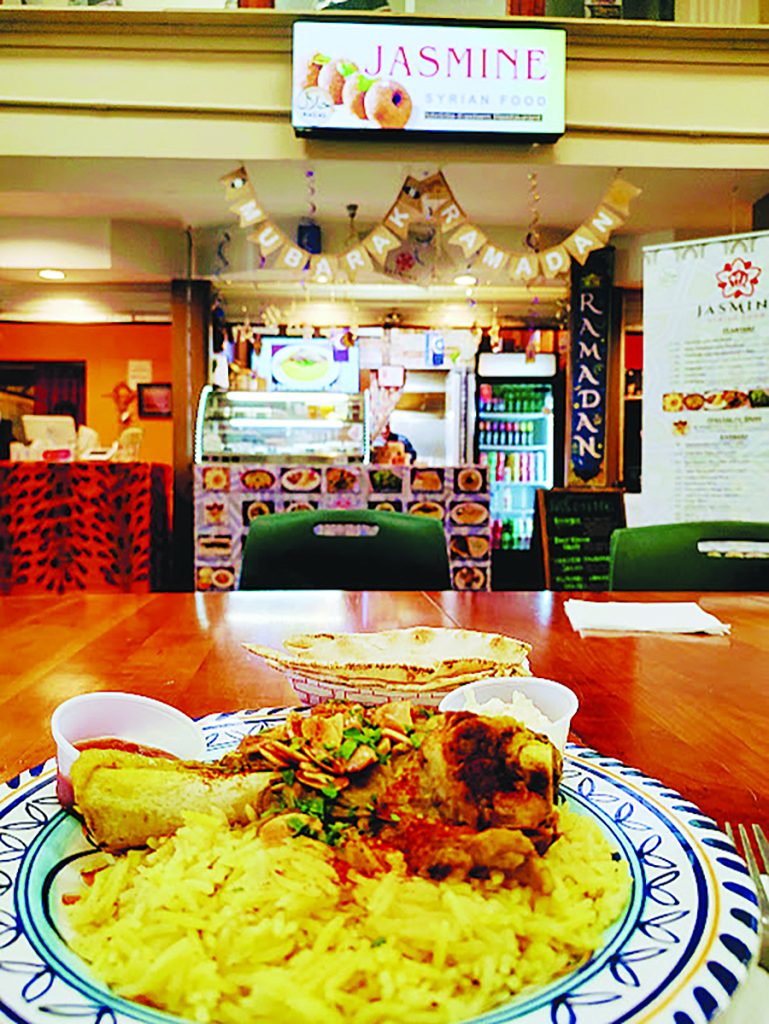
Food halls have proliferated across Colorado, many featuring the same cuisines. Mango House is something completely different.
Entering through a colorful alley entrance, you find yourself in a bubbling nexus of cultures, languages, dress, tastes, sounds and aromas. Immersive doesn’t quite describe it.
Mango House is a remarkable shared community center for resettled Denver- area refugees set in a former J.C. Penney in the heart of Aurora. Front and center are food stalls and international shops around a welcoming, colorful, flag-festooned atrium dining area.
On a recent Friday afternoon, side-by-side food stalls were dishing competing plates of lamb shank with rice prepared as it would be in Damascus, Johannesburg and Kathmandu.

We started with tibs and fresh spongy injera bread from Langano Ethiopian and piri piri chicken wings from Swahili BBQ Grill. For the main course, we settled on dishes from the Urban Burma counter because, honestly, how often do you encounter Burmese food?
Urban Burma’s sii cheh kao sweh is a total flavor party — salty, umami, slightly sweet and herbaceous. Flat noodles are tossed with fried garlic, sesame oil, green onions and crispy pork or chicken. Nan gyi dok is spicy Burmese spaghetti served with crunchy puffed rice and chicken broth to sip. Worth a drive all by itself is the fermented tea leaf slaw, a bomb of crunch and umami.
“It’s our most popular dish,” says Siri Tan. He and his brother opened Urban Burma as Colorado’s first Burmese restaurant five years ago. “We import the tea leaves from Burma.”
Mango House is really a refugee business incubator for markets, like the Rohingya Asian Grocery, and for six restaurants.
“The landlord had this great idea to only rent spaces in the food court to refugees from around the world,” he says. “Rent is very reasonable, and they provided the kitchen equipment to get them started.”
Founded by Denver physician P.J. Parmar, the facility has focused on providing affordable walk-in medical services for Denver’s refugee population along with a dental clinic, a pharmacy, meeting spaces and even a Boy Scout troop.
The refugees who eat here come to connect with their food from home. “It’s the Americans who are more willing to try new things,” says Tan, a native of Burma (also called Myanmar).

Mango House is a perfect place to wander from your dining comfort zone. And you can bring the kids: A big open play area is often filled on weekends with children from around the world.
Tan’s food court favorites include the lamb shank from Jasmine Syrian and goat curry from Nepali Spice. You can finish the feast with thick Syrian coffee and pistachio baklava or a cup from Natoli Cafe, the food hall’s early-opening Ethiopian breakfast joint.
Coming to eat at a place like Mango House “might be intimidating for some people to try,” Tan says, “but it’s authentic. Everybody you see working came from where we came from.”
As we ate, a nearby table in the food hall was being decorated with balloons. A large, multi-generational family arrived to celebrate their matriarch’s 93rd birthday complete with cake and fare from Golden Sky Asian Food.
At the appropriate moment, the folks who owned the nearby Ethiopian, Syrian and Nepali food stands and shops all gathered around the table. They loudly sang “Happy Birthday,” and we all joined in.
